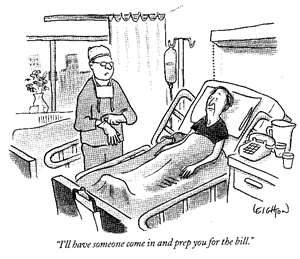At the end of 2009, as the ACA was being born, while I was recovering from a fully insured (but dreadfully painful post-op) rotator cuff surgery, I shared my two cents worth on the coming of the ACA. With the healthcare debate now front and central in the GOP-controlled Congress, which is committed to repealing the ACA but with no coherent replacement plan in sight, I thought it was time to review this topic. And yes, Ron and I remain fully covered by Medicare and a terrific supplemental policy through his previous work for and retirement from NASA.
If we’re serious about having high quality and solid health care coverage at affordable prices for every American who isn’t covered by an employer-provided plan (but with those plans required to provide the same solid coverage as their baseline), by Medicaid or Medicare, then it’s clear that we’ve got to make peace with some foundational principles. Telling someone that they can buy any policy they want when they can’t afford either the policy premiums or the associated fees and co-pays isn’t very helpful. Nor is ignoring the reality that timely access to preventive, diagnostic, and curative healthcare is truly a matter of life and death — deaths which will be on all of our hands if we don’t figure this out. So here’s what I’ve been thinking about all of this.
First, we’ve got to reform our health care system itself to get out as much waste and corruption as possible so that no one, whether provider or insurer or pharma etc., is making an obscene profit and that everyone involved is being taxed progressively. We need incentives for tackling and triumphing over the most costly health care issues, prevention built into our culture and our medical delivery, and the expectation that we’ll all get good basic coverage while the rich are free to pay as they choose for the extras. Funding high costs targets, like cancer and Alzheimers, where cures or prevention would have a huge impact on overall health care costs must be a top priority.
Second, we need everyone to participate, with the costs shared equitably and progressively. Yes, men may not need pre-natal care, and women may not need prostrate care, but we’re all in this together when it comes to improving the health and reducing the suffering of our family/friends/communities so policies must be gender neutral in their coverage to ensure that we’re all in this together. As to costs being shared equitably and progressively, those with the least will be subsidized, those able to pay will do so on a sliding scale so that those with the most do in fact subsidize those with the least. Having a healthy community matters to the wealthy as much as it matters to everyone else, and getting everyone vaccinated for the flu helps ensure that the wealthy stay healthy. So, no more fussing from those at the top because they’re asked to pay more, and no more fussing from anyone over the requirement that they get certain preventive and wellness care.
Third, there’s a ton of profit sloshing around in our current healthcare system, but we Americans are inclined to keep a private sector approach to healthcare. As long as we accept that every bit of that profit will be honestly earned and that those who try to profit dishonestly will be nailed and jailed, I’m inclined to continue our efforts to make an essentially for profit healthcare system work. But that means doctors must be prepared to shut down the bad doctors, hospitals must be prepared to police their own, big pharma must accept some degree of cost control and price negotiation, and the list goes on. There’s simply no way to achieve a private sector health care world that serves all of us well unless the bad actors are removed.
Fourth, we need to automate the hell out of every aspect of our healthcare system and do it intelligently. We clearly need a master healthcare record that’s complete, portable, and owned by the patient. Started at birth, this record should travel our preventive healthcare, from vaccinations and other preventive measures to wellness-related activities, our healthcare issues/diagnoses/treatments/etc., and all tests, doctors visits, hospitalizations, etc. But a universal healthcare record isn’t nearly enough. When doctor’s write prescriptions, they should be advised right then about generics, costs, drug interactions, needed instructions to patients, everything. Same with any recommended tests and procedures. Doctors make mistakes, overlook things in those huge manual files upon which so many of them still rely, and almost never have any idea about costs. Technology can do a lot here to reduce mistakes, improve care and reduce costs, but it would take the level of cooperation across the healthcare system that we see across the payments system.
Finally, every single one of us — and this means me no matter how uncomfortable the reality — must be ready to walk, eat healthy, get our wellness checkups, vaccinate our children, stop smoking, treat our addictions forcefully, and do all the other things which improve our individual and community health. We must get back to a set of values which limited risky behaviors because those who practiced them were shamed — yes, shamed — into changing their behavior. Opioid addiction takes both supply and demand, and the sooner we start jailing the overprescribing physicians the better. Vehicular accidents where speeding or DUI are involved are a choice by the driver, and those drivers should also be nailed and jailed. And those who want to play extreme sports or otherwise gamble with their health should do so at their own risk and without the expectation that the collective healthcare system is going to take care of them. Just as drivers of certain vehicles pay much higher insurance rates, so should partakers of other risky lifestyle activities. Fair’s fair.
Yes, we can do this. But first we need to have the conversation about the principles upon which our healthcare system is going to be based. I’m sure no one will agree with mine, but we have to start somewhere to decide what we want our healthcare system to look like when we grow up.







Leave a Reply
You must be logged in to post a comment.